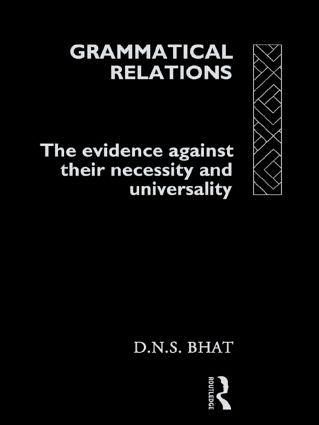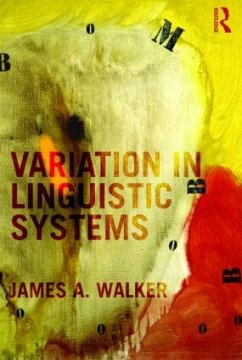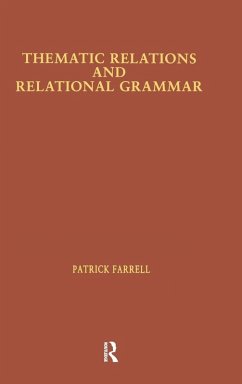
Grammatical Relations
The Evidence Against Their Necessity and Universality
Versandkostenfrei!
Versandfertig in 1-2 Wochen
167,99 €
inkl. MwSt.
Weitere Ausgaben:

PAYBACK Punkte
84 °P sammeln!
This book argues that the assumption that grammatical relations are both necessary and universal is an unwarranted generalization. The grammatical relations of subject and object are required in the case of the Indian language of Kannada. Furthermore, the notion of transitivity or transference which forms the basis for postulating grammatical relations does not play the expected central role in all languages: in the case of another Indian language, Manipuri, it is volitionality and transitivity which plays the central role in clause structure. Dr. Bhat argues against the universality and neces...
This book argues that the assumption that grammatical relations are both necessary and universal is an unwarranted generalization. The grammatical relations of subject and object are required in the case of the Indian language of Kannada. Furthermore, the notion of transitivity or transference which forms the basis for postulating grammatical relations does not play the expected central role in all languages: in the case of another Indian language, Manipuri, it is volitionality and transitivity which plays the central role in clause structure. Dr. Bhat argues against the universality and necessity of grammatical relations; his provocative hypothesis will be a challenge to all those concerned with the nature of language.













